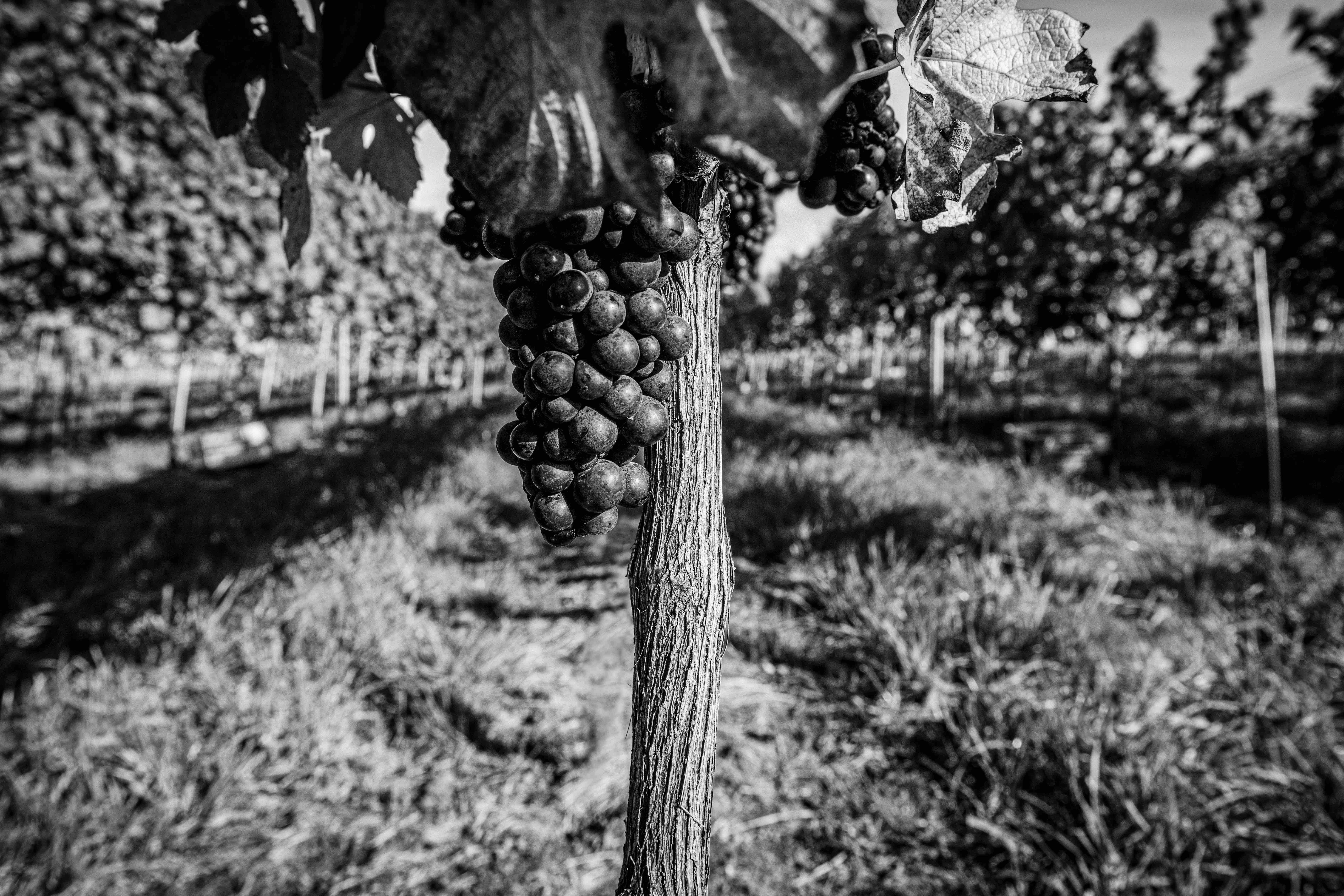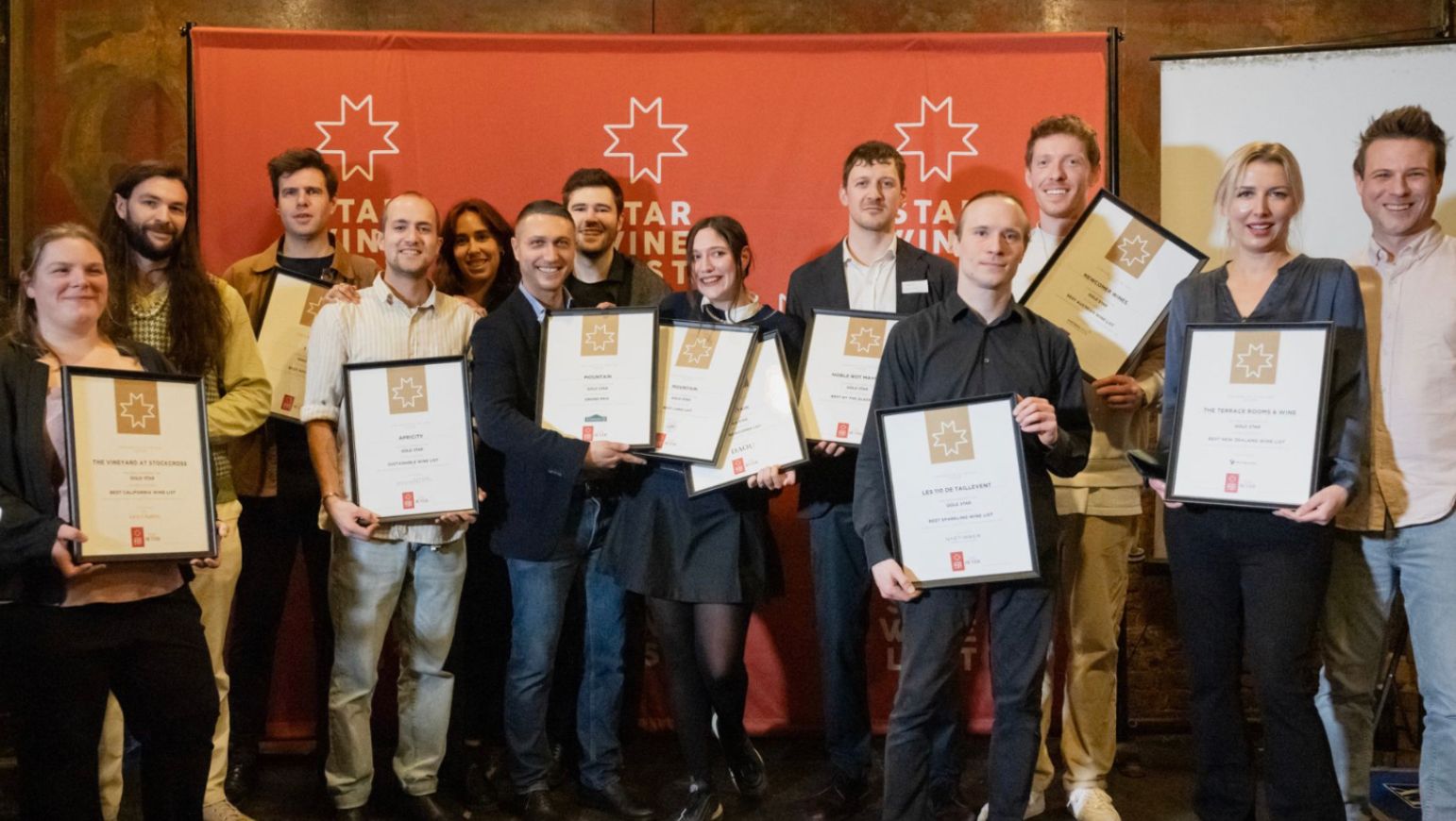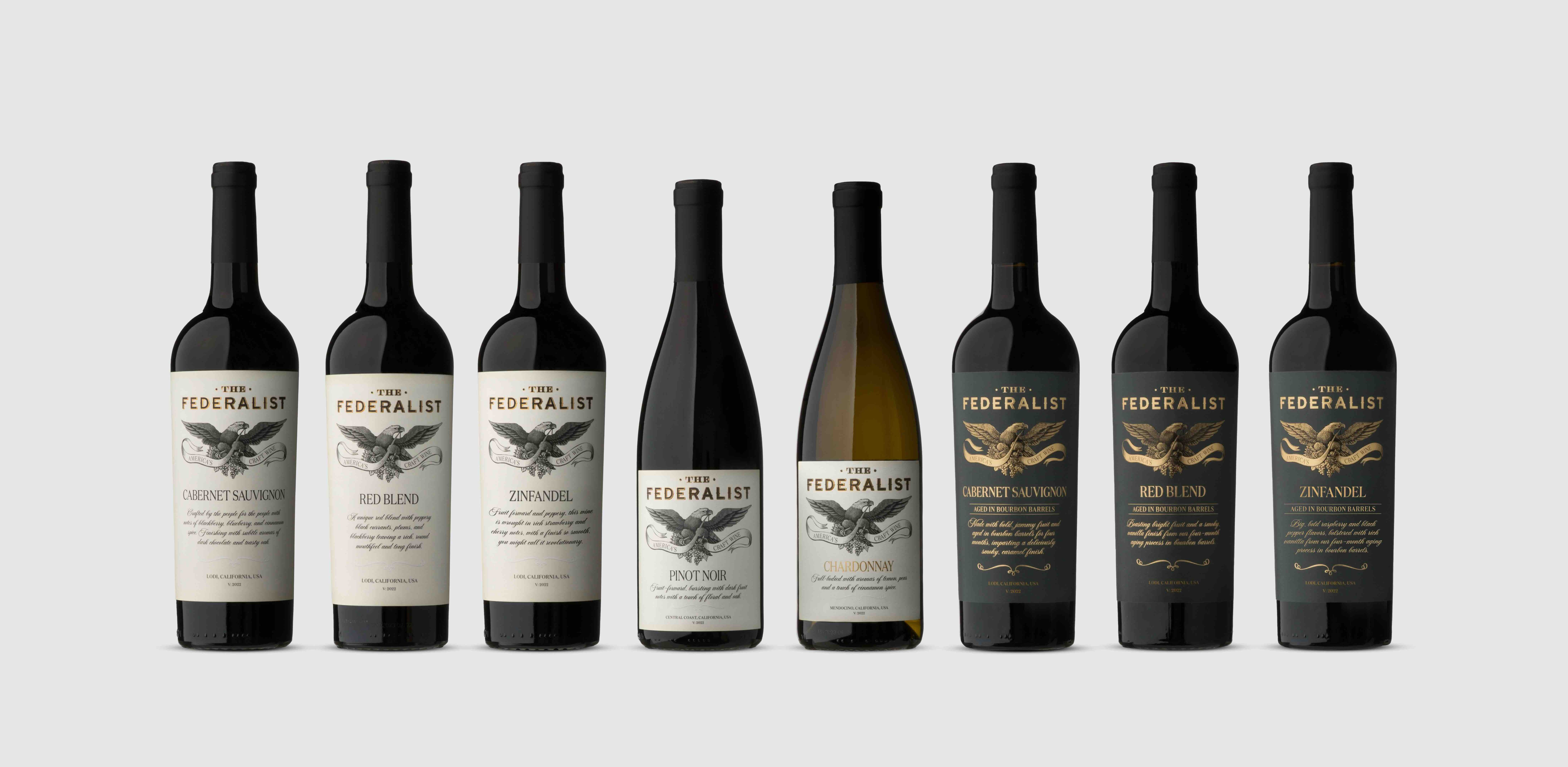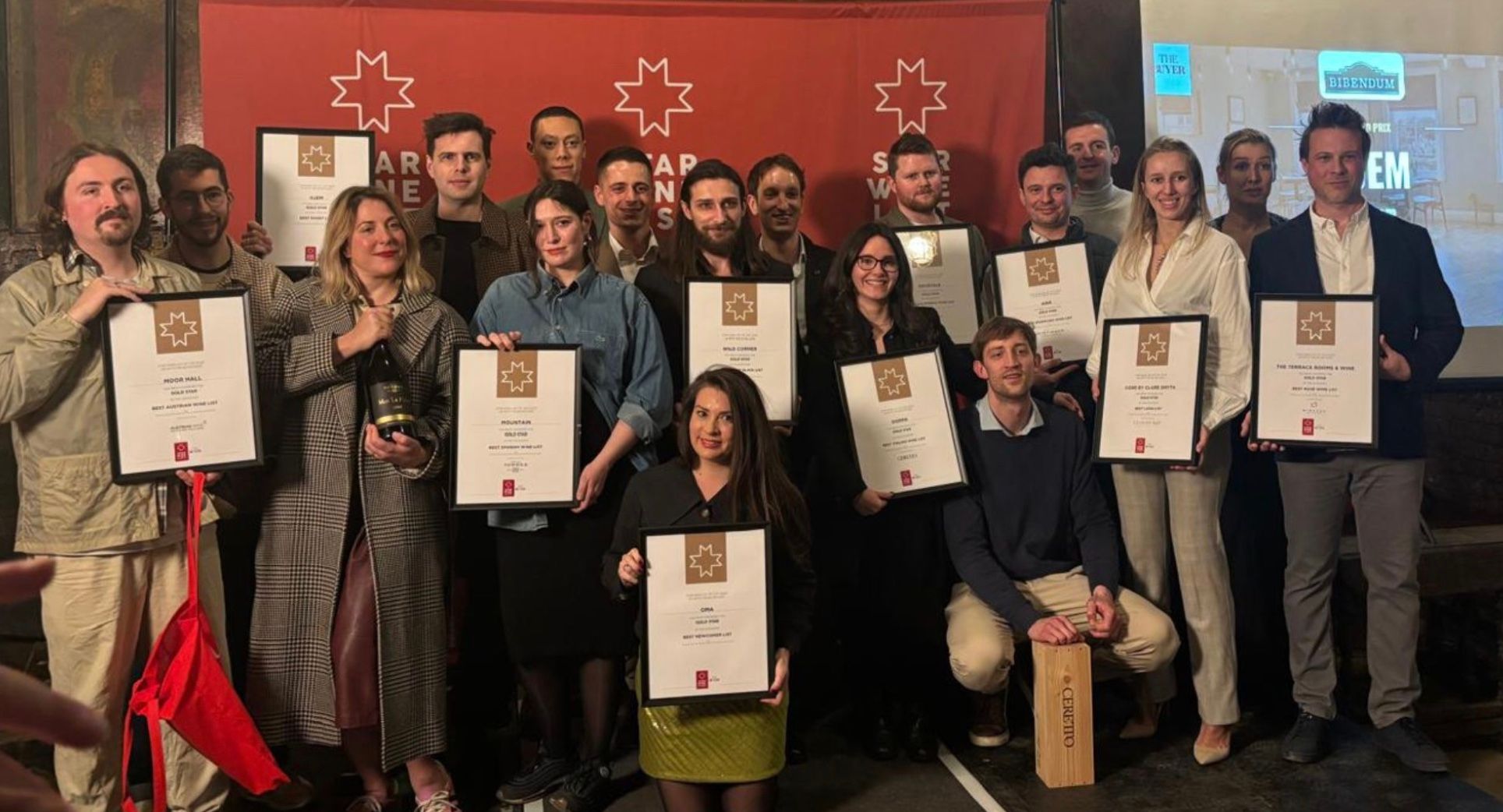Everflyht looks like the sort of jumble of letters that might come up during the word round on Channel 4’s Countdown. But in wine terms it can be quickly dismantled to stand for an English wine producer that is looking to make high quality sparkling wines, where the impact it is having on the vineyards and its surrounding area is as important as the final wine in the glass.
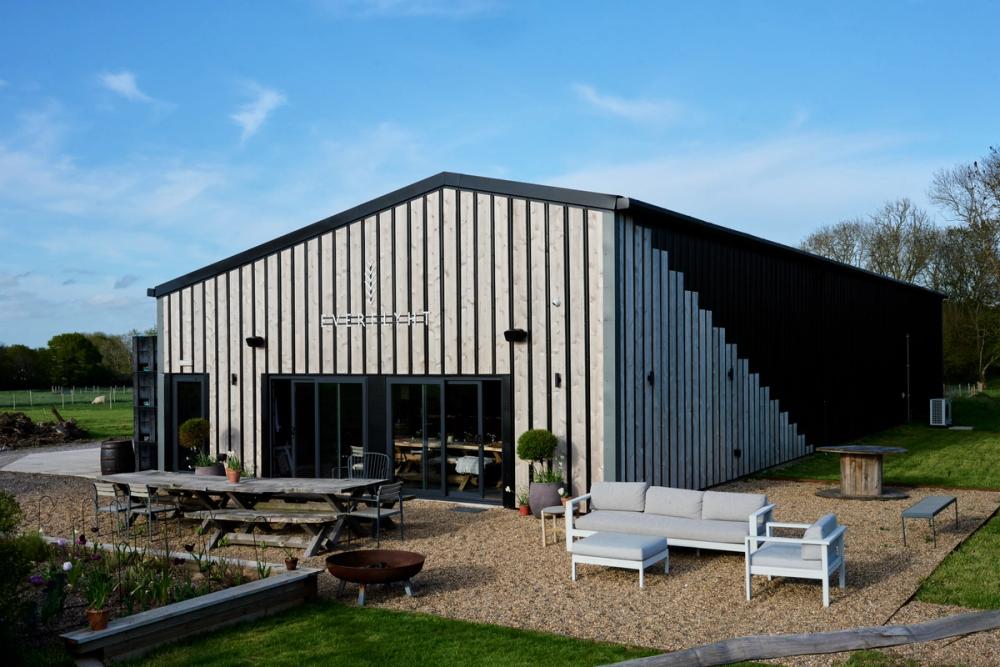
Everflyht is proud to shout about its regenerative farming practices
The name “Everflyht” is apparently inspired, according to the producer’s website, “by the six Martlets of the Sussex crest symbolising knowledge, adventure, and learning”. The Everflyht coming from the fact these birds are always “ever in flight”.
It adds: “These six Martlets make up the Everflyht feather, a symbol of our adventures and innovation in wine and to never settle.”
If only it was easier to spell.
Everflyht is very much a family affair headed up by husband and wife Sam and Ben Ellis who, inspired by vineyards they had seen around the world, most notably in the Napa Valley, decided to set home in this quiet part of East Sussex in 2015, plant their own vines and start making their own sparkling wine…eventually.
It’s been a bit more complicated than that - the vines were planted in 2016 but the first wine not released until 2022. Helping to steer the operation is Luke Spalding, previously at Ridgeview, who has been responsible for managing the 6.8 hectares of vines - made up of the traditional English sparkling wine varieties of Chardonnay, Pinot Noir and Pinot Meunier.
Crucially they also set aside 3.5 hectares of additional land in order to create a biodiversity for the vines to grow in surrounded by over 400 trees, 800m of hedgerow and wildflower meadows.
Regenerative philosophy
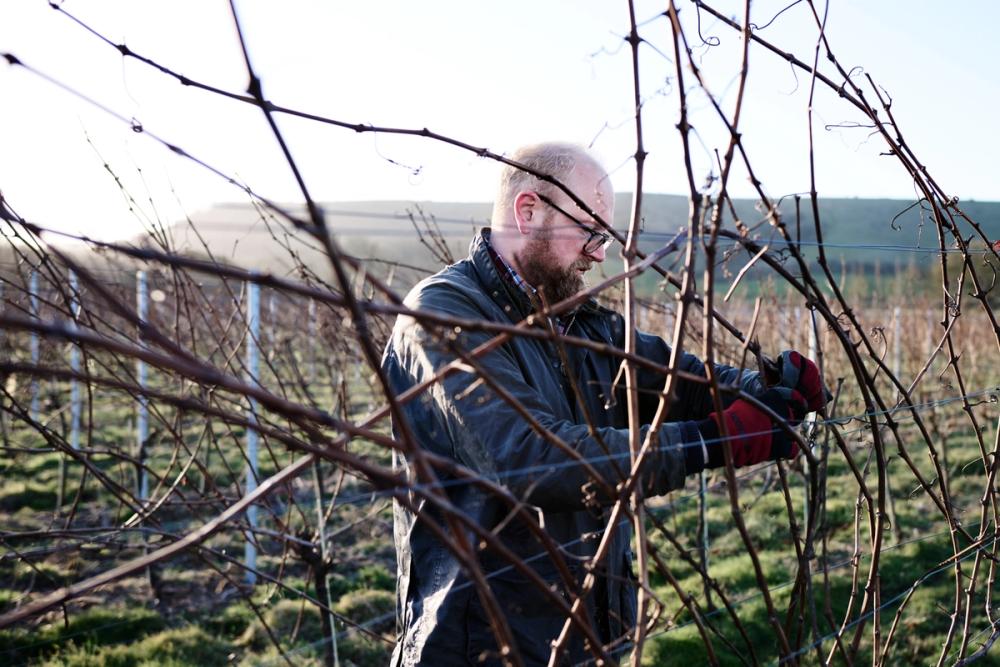
Luke Spalding has grasped the opportunity to drive the winemaking operation at Everflyht
The Ellis’ have taken a long-term view not only in terms of maturing and releasing their wines, but in how it looks after its land and the surrounding environment.
It is that respect for the land and the environment they are responsible for making that is very much at the heart of everything Everflyht does, stresses Spalding. A winemaking philosophy built around regenerative farming.
He explains: “For me regenerative is about building a farming or viticulture system that long term can help to support itself by improving plant health and soil health meaning that the land will need less inputs such as fertilisers and pesticides to grow and protect the vines and grapes.”
Which might sound straight forward enough, but very much isn’t. Spalding adds:
“Regenerative is not black and white, I was at Groundswell this year and along with regenerative the word hybrid farming was used a lot. Regenerative is, in a way, an advanced IPM system or a composite of organic, biodynamic and sometimes conventional method with the main focus on producing a crop that is sustainable long term both from a land use point of view and an economic point of view.”
What that means for Everflyht is being insecticide free - including organic insecticide free - and not using any synthetic fertilisers anywhere in its farming or winemaking processes. It now runs a 90% organic spray program, but Spalding concedes it will “use conventional when there is a risk of total crop loss”.
The whole concept of regenerative farming is to create an environment that is good for vines, but also all the flora and fauna around them.
Spalding explains: “The site is made up of habitats from meadows and wildflowers areas to hedge rows, woodland creation areas and re wilding as well as ponds and water management systems to help build an ecosystem around the vineyard, or to weave the vineyard and crop back into environment so it is fully intergraded and not a monoculture.”
From a winemaking point of view it means the Everflyht team can produce wines where the “focus is on the fruit”. “We are not about making cellar-style wine.”
Right thing to do
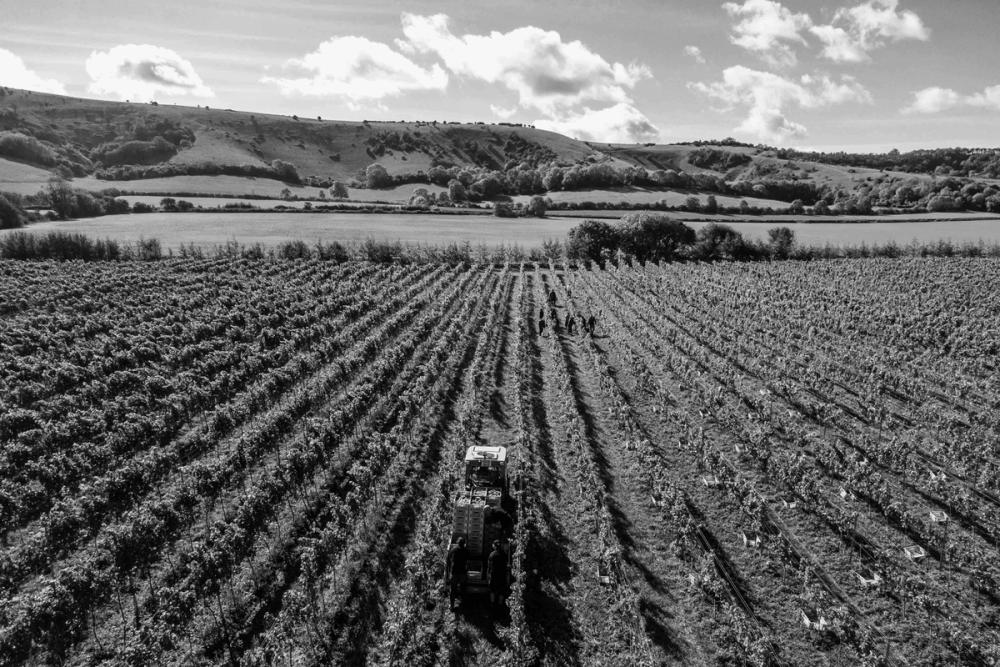
Every step is taken to look after the vines and the soils as part of the regenerative farming principles
But the regenerative approach is not directly about influencing the quality of its wines, he stresses.
“At the moment there is no research that has been done to suggest that organic, biodynamic or regenerative increases the quality or the wine, and for me that is not the point of regenerative farming, the point is, if I ever have children there will be able to far, grow grapes on better land then I had and be able to grow an environmentally sustainable crop and economic sustainable crop.”
Which means it is not about counting the number of gold medals the wines might win, but analysing all the data from the land and its soils, and judging itself on
“vine health markers via sap results and data collection, soil sampling, yield output and money spent during the season”.
He adds: “Some methods are new or new to me and there don’t always work first time round, or it takes longer than you hope to see results be that with soil health, vine health or with the UK climate and the high diseases pressure we have, having the confidence to not spray.”
Although it is doing what it can to work in the right way in the vineyards, it is not, as yet, looking for official certification to prove it.
“At the moment there are not many I would look to certify with,” he claims. “Organics that promote the use of copper is not really sustainable, we use herbicide on a limited basics, plus I think we need some hard lines or a definition of what regenerative covers before it can be certified and currently there is no definition accepted by any country in the world. So that needs to change first.”
He adds: "I think anyone who is doing organic, or biodynamics is pretty much regenerative, it all comes under the sustainability umbrella really, but I would question some economic sustainability points with organic and biodynamics, more so in the UK and the climate we have here for grape growing as well as climate change and how that is impacting growers around the world.”
That said it does work with a number of bodies to make sure it is on the right path including the SWGB and Regenerative Viticulture Foundation. It is also in close contact with Plumpton College, the WSET and Masters of Wine and looks to share advice where it can.
“Generally, its about building community knowledge with people in the industry as well as other growers from the UK and the rest of the world,” he says.
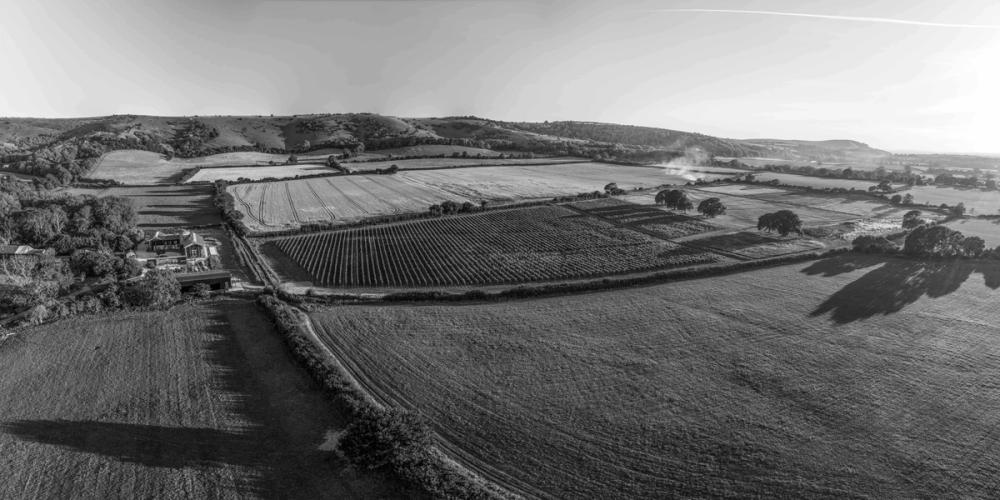
Everflyht is making the most of the climate and growing conditions at Ditchling Beacon in the South Downs
It is also a constantly moving situation and Eveflyht is also experimenting with cover crops, pruning methods, weed suspension and composts, using low or no mowing and slow tilling when seed drilling cover crops.
The best way he believes to understand regenerative farming and the impact it is having is to see it for yourself.
“It’s hard to put down on paper, I think the best way to see what we are doing is visit the Everflyht estate to truly see the difference.”
Ultimately, he says, it wants to “build a plant protection system within the vine that needs little or no help from fungicides to produce a health sustainable crop both economical and environmentally.”
Which is all along way from assessing the freshness in its wines or their natural acidity.
Routes to market
Whilst the vine and grape growing is managed directly by the Everflyht team it works with Hambledon Vineyard in Hampshire to help make the wines in its winery.
Spalding says the partnership with Hambledon has been ideal for helping it build its reputation and work with a fellow producer who understands what it is looking for.
But he is quick to add that the wines it makes are very much an “Everflyht style and not a Hamledon style” and it is using all its “own vessels and barrels” in the winery. Including using puncheons and clay vessels (500 litres) and 100% malolactic fermentation.
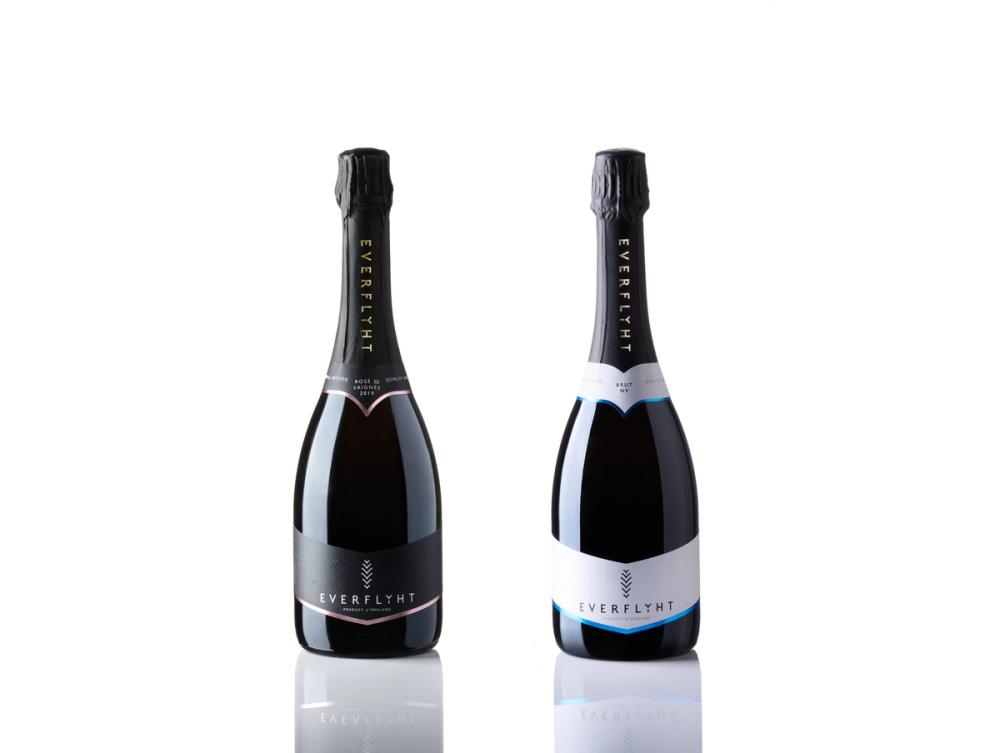
Part of the Everflyht range...
It is still very much at the beginning of its story and is currently producing around 16,000 bottles a year. But hopes to double production to around 35,000 to 40,000 in the next two years.
Whilst its sparkling wines will always be it flagship brands, Spalding says it is also looking at the opportunities that might come its way to make some still wines too.
“It is easier by the glass for the consumer to get to know us as well,” he says. “If people like the still wines they will hopefully go on and buy the sparkling too and there is clearly a bigger market for still than there is for sparkling.”
Which is important for its direct to consumer sales as well as its partnerships with key suppliers such as Berkmann and Lay & Wheeler.
“We are working a lot with sommeliers to get them down to the estate and do staff training for their teams as well.”
It has planted some Pinot Gris - 0.5 hectares - and Gamay to help with its still wine production, including potentially a rosé down the line.
"We nearly planted some Cabernet Franc in 2021 but switched the planting plan to include Gamay which could work for sparkling as well as still. I do believe Cabernet Franc is a grape for extensive future planting in the UK and we will see more planted over the next five to 10 years. White Castle has already planted some and the first wine they have produced from the grapes our Stellar."
The key, though, concludes Spalding is to build on the success the wines has had in terms of reviews, points and awards build its reach and distribution, particularly in the premium on-trade with key restaurants and hotel groups.
The Everflyht Range
Everflyht Rosé De Saignée
Everflyht Brut NV
Late Release Edition 1 NV
Everflyht Blanc de Noirs - Released in November 2024.
